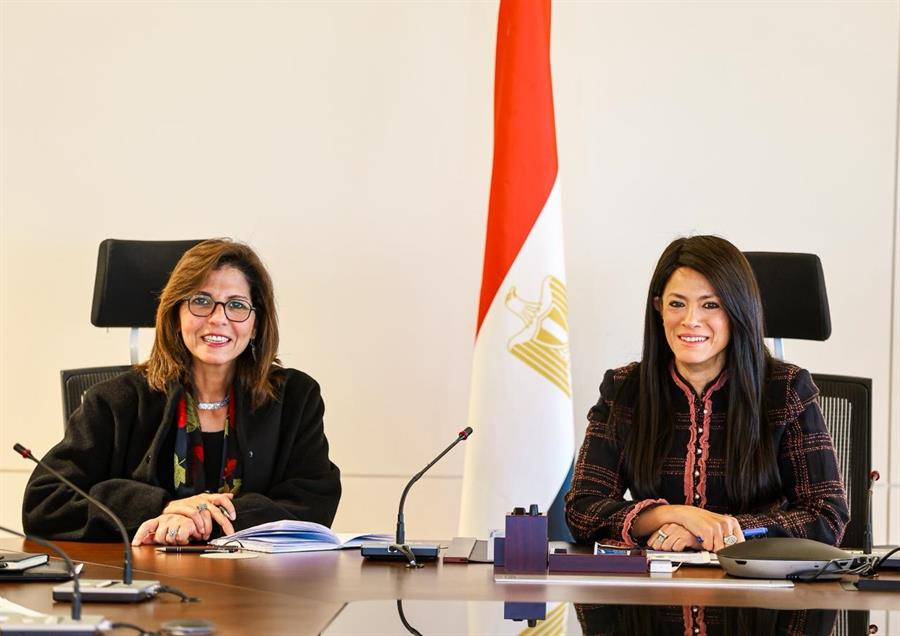Egypt's Ministry of Planning and Economic Development, NIGSD launches "Be An Ambassador" initiative for media professionals

29 November 2021
Egypt’s Ministry of Planning and Economic Development and the National Institute for Governance and Sustainable Development (NIGSD) launched today the “Be an Ambassador” initiative as a specialized batch for media professionals and journalists.The initiative witnessed the presence of Dr. Ahmed Kamali, Deputy Minister of Planning, Dr. Sherifa Sharif, Executive Director of NIGSD, and Dr. Hussein Abaza, Advisor to the Minister of Environment and a UN expert.Dr. Ahmed Kamali, Deputy Minister of Planning and Economic Development, said that the aim of holding the (Be an Ambassador) initiative is to spread societal awareness of sustainable development and the UN goals so thought of an awareness initiative directed especially to young people.Kamali pointed to the launch of 27 reports on the localization of sustainable development goals at the governorate level, stressing the importance of efforts for localization, explaining that Egypt is the only country in the region that has taken that approach by issuing these reports. Kamali also referred to the initiative for a “Decent Life), which is part of the process of localizing the sustainable development goals. Kamali added that the initiative was developed among the pioneering initiatives of the United Nations that promote sustainable development goals.Kamali stressed that the next few months will witness a world-first event to launch the Financing for Development report, which will be launched for the first time at the level of a country, explaining that the report has always been launched globally, as the report will include financing the sustainable development goals in all its dimensions.During the first session entitled (The Ministry of Planning’s Efforts towards Sustainability), Kamali referred to the update of Egypt’s Vision 2030, which represents the national version of the UN agenda, which was launched in 2016, explaining that Egypt is one of the first countries to launch a vision derived from the UN agenda.
Kamali referred to economic reform as one of the most important changes that occurred and affected the economic situation, which had to be included in the vision, in addition to several other important issues, which included the issue of water scarcity and the geopolitical situation in the region, as well as financial inclusion.He also referred to the Covid-19 crisis and its consequences, not only health but also economic, social, and environmental, explaining that Egypt had taken many quick measures to confront this crisis.Kamali stressed the importance of digital transformation and digitization, explaining that the issue of digital transformation has many dimensions that are related to it, such as governance and support, noting that digitization contributes to giving support to those who deserve it by targeting groups that need support and directing it the right direction.Kamali affirmed Egypt's commitment to the international community to implement the UN 2030 Agenda, explaining that Egypt is among only 10 countries that have submitted three voluntary reviews since 2016 to monitor what has been achieved and indicators for sustainable development. Kamali stressed that the voluntary report is presented with utmost honesty and transparency to include achievements and challenges as well, explaining that the voluntary report for Egypt, which was submitted in 2018, included many challenges that Egypt faced, such as issues of population increase, financing development and the challenge of providing data.During her speech, Dr. Sharifa Sharif, Executive Director of the National Institute for Governance and Sustainable Development (NIGSD), said that the "Be an Ambassador" initiative is one of the most important initiatives launched by the Ministry of Planning and Economic Development in cooperation with the Institute. Sherif indicated that the initiative was launched in 2020, at that time, more than 7,000 candidates applied to it.She added that the main objective of the initiative was to train about 1,100 young men and women during the first year in the age group of 18-35 years. Sherif added that the third phase of the initiative included the TOT training program for these young people to become certified trainers in the field of sustainable development, explaining that the candidates were then filtered and about 500 young men and girls were selected as ambassadors for sustainable development.
The Executive Director of the National Institute for Governance and Sustainable Development reviewed the work and other training programs offered by the Institute, and the partnerships with other regional and international educational bodies.For his part, Dr. Hussein Abaza, advisor to the Minister of Environment and UN expert, stressed the importance of the pivotal role of the media as an effective authority in raising societal awareness of the UN goals and supporting the implementation of sustainable development in Egypt.Abaza also talked about the difference between economic growth and development, explaining that growth alone is not sufficient for development to occur, as development includes undertaking structural reforms in all sectors.Abaza also referred during his speech to the repercussions of the Covid-19 pandemic worldwide, which led to the transition of many citizens from the middle class to the poor and the loss of jobs, which necessitated the adoption of many policies and measures that reduce the severity of the effects of the crisis.Amira Hossam, Assistant Minister of Planning and Economic Development for Sustainable Development Affairs and coordinator of the initiative highlighted the role of journalists and media professionals as an awareness tool and a channel for communication with the public, and their role in spreading the culture of sustainable development among the public through the press and audio-visual media.









